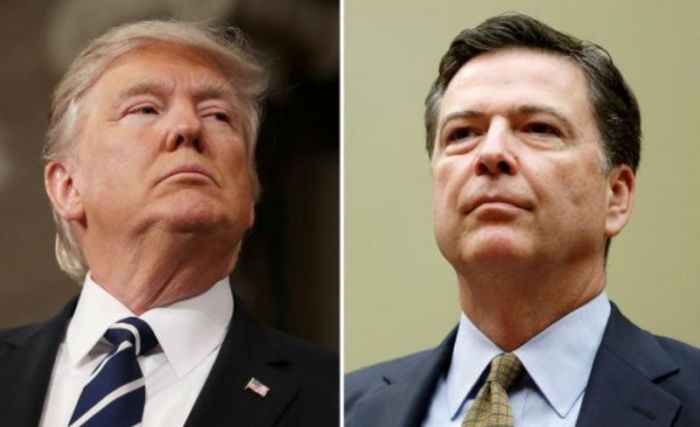5 big takeaways from the Mueller report

Multiple acts by Trump were 'capable of exerting undue influence'
The investigation found “multiple acts” by Trump that were “capable of exerting undue influence” over law enforcement investigations.
“The incidents were often carried out through one-on-one meetings in which the President sought to use his official power outside of usual channels,” the report explains. “These actions ranged from efforts to remove the Special Counsel and to reverse the effect of the Attorney General's recusal; to the attempted use of official power to limit the scope of the investigation; to direct and indirect contacts with witnesses with the potential to influence their testimony.”
The report asserts that by viewing these acts of the president collectively, it can “illuminate their significance.”
“For example, the President 's direction to [Don] McGahn to have the Special Counsel removed was followed almost immediately by his direction to [Corey] Lewandowski to tell the Attorney General to limit the scope of the Russia investigation to prospective election-interference only — a temporal connection that suggests that both acts were taken with a related purpose with respect to the investigation.”
The Mueller report examined 10 “episodes involving the President and discusses potential legal theories for connecting these actions to elements of an obstruction offense.”
Among the episodes outlined in the report is the dinner Trump had with former FBI Director James Comey in January 2017 where he asked Comey “for his loyalty.” It also brings up a few weeks later when Trump asked Comey to let former National Security Advisor Michael Flynn “go” after he was caught lying about a conversation he had with a Russian official.
The report also mentions how Trump asked former Attorney General Jeff Sessions to “unrecuse” himself from the Russia investigation. The report also points out that Trump asked Comey and other intelligence leaders in March 2017 to push back publicly on suggestions that Trump had any connection to the Russian election interference.
The report states, however, that the evidence does not establish that Trump asked or directed intelligence agency leaders to stop or interfere with the FBI’s Russia investigation.
In looking at Trump’s firing of Comey in May 2017, the report explains that Trump’s dismissal of Comey “would qualify as an obstructive act if it had the natural and probable effect of interfering with or impeding the investigation.” The report even suggests that Trump was looking to protect himself from an investigation into his campaign.
However, the report does not conclude that a thorough FBI investigation would have uncovered facts about Trump’s campaign that the president would have understood to be crimes or give rise to “personal or political concerns.”
The report argues that the president’s efforts to influence the investigation were “mostly unsuccessful” because “the persons who surrounded the President declined to carry out orders or accede to his requests.”
“Comey did not end the investigation of Flynn, which ultimately resulted in Flynn's prosecution and conviction for lying to the FBI. McGahn did not tell the Acting Attorney General that the Special Counsel must be removed, but was instead prepared to resign over the President's order,” the report states.
“Lewandowski and [Rick] Dearborn did not deliver the President 's message to Sessions that he should confine the Russia investigation to future election meddling only. And McGahn refused to recede from his recollections about events surrounding the President's direction to have the Special Counsel removed, despite the President's multiple demands that he do so. Consistent with that pattern, the evidence we obtained would not support potential obstruction charges against the President's aides and associates beyond those already filed.”
Barr told reporters that despite the 10 episodes of potential obstruction described in the report, evidence was “not sufficient.”
“After carefully reviewing the facts and legal theories outlined in the report, and in consultation with the Office of Legal Counsel and other Department lawyers, the Deputy Attorney General and I concluded that the evidence developed by the Special Counsel is not sufficient to establish that the President committed an obstruction-of-justice offense.”
Barr added that Deputy Attorney General Rod Rosenstein disagreed with some of the theories outlined in the report.
“And at the same time, the President took no act that in fact deprived the Special Counsel of the documents and witnesses necessary to complete his investigation,” Barr said. “Apart from whether the acts were obstructive, this evidence of non-corrupt motives weighs heavily against any allegation that the President had a corrupt intent to obstruct the investigation.”
Follow Samuel Smith on Twitter: @IamSamSmith
or Facebook: SamuelSmithCP




























